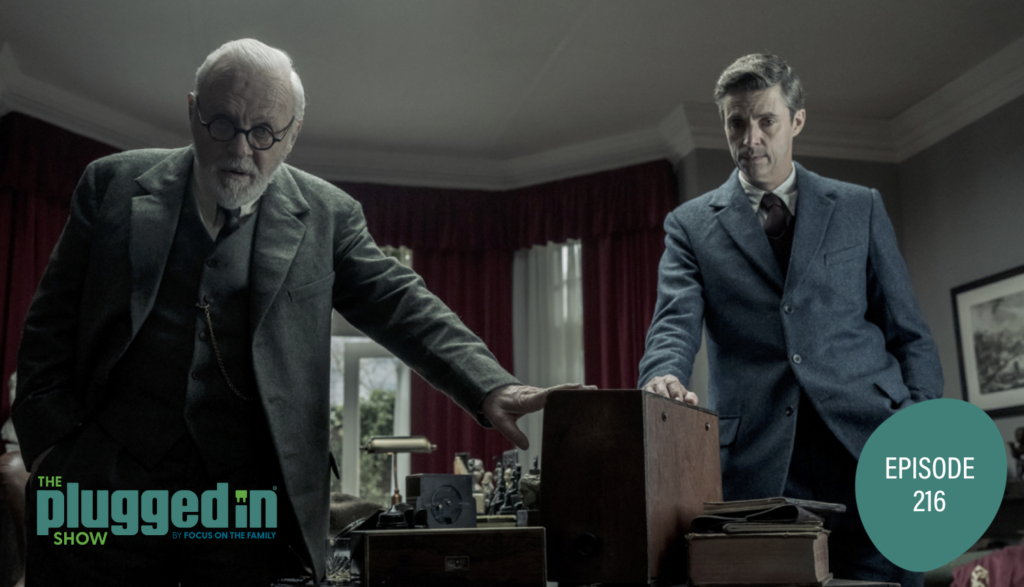LISTEN TO THE PLUGGED IN SHOW, EPISODE 216
Imagine, if you will, that the cinematic world is a high school. And for most of the year, Hollywood’s equivalent of the football team and the volleyball squad—the action flicks, the lowbrow comedies, the would-be blockbusters of every shape and size—rule the roost.
But around this time of year, the Hollywood equivalent of the chess club elbows the big boys out of the way. Small films and indie flicks take center stage, competing for awards-season glory. And while most of these movies won’t draw nearly the crowds that, say, a Barbie or Guardians of the Galaxy film might, they just might make those who do see those films think a little more deeply.
We’re going to be talking about a couple of those movies on this week’s show. First up, the German-language gem The Zone of Interest. It’s about Rudolf and Hedwig Hoss, who built for themselves what they’d consider an idyllic family life right next door to Rudolf’s workplace. The kicker? Rudolf was the commandant of the Auschwitz concentration camp.
The film concentrates on Hedwig and how she revels in her life—willfully disregarding the atrocities happening on the other side of the wall. It reminds us that evil has many faces, and the face of indifference can be among the ugliest, most evil of all.
After that, we move to another small film that takes place during World War II—only this film is set in a quiet London home where two intellectual titans meet and talk about God. Yep, no joke. The movie’s titled Freud’s Last Session, and those titans (as you likely gathered from the headline) are C.S. Lewis and Sigmund Freud—the former just beginning his journey as one of Christendom’s most beloved authors and apologists, the latter dying of cancer. It’s a fascinating fictional joust that seems to pay close attention to what the real men actually said and thought about God—and it’ll likely spark plenty of thoughts and questions in the viewer, as well.
So join us, won’t you, as we put on our smoking jackets, sit by the fire and talk about important things. And then pull up a chair and join us. What movies have made you think? What films have triggered important questions in your mind? We want to know. You can always post your thoughts right here, of course. But feel free to make your feelings known on Facebook and Instagram. Send us an email at [email protected]. Or leave us a voicemail on the podcast homepage, thepluggedinshow.com. We’d love to hear your thoughts.
And as always, thanks for making a little time for us at The Plugged In Show.







3 Responses
Good insightful article that’s well worth reading.
Agreed, and that Freud/Lewis movie sounds fascinating.
December/January is my favorite time of the year for movies, and I don’t see it as an elitist chess club/smoking jacket thing. The Zone of Interest is awfully serious, but critical favorites like Poor Things, American Fiction and Maestro are entertaining, well-made and accessible movies that are just as much fun to watch (I would say MORE fun) as the average “dude in metal suit saves the universe for the 23rd time” franchise extension.
It’s worth noting too that there aren’t stark lines this year between winter critical darlings and disposable summer blockbusters. Oppenheimer and Barbie are challenging, thoughtful films that impressed critics, made oodles of money, and came out in the summer.
Audiences are embracing smart, fresh, daring movies. Franchise sequels are underperforming. TV streaming (where a lot of the best filmmakers fled in the 2010s) seems to have peaked. This could be the start of an exciting trend in the movie industry.